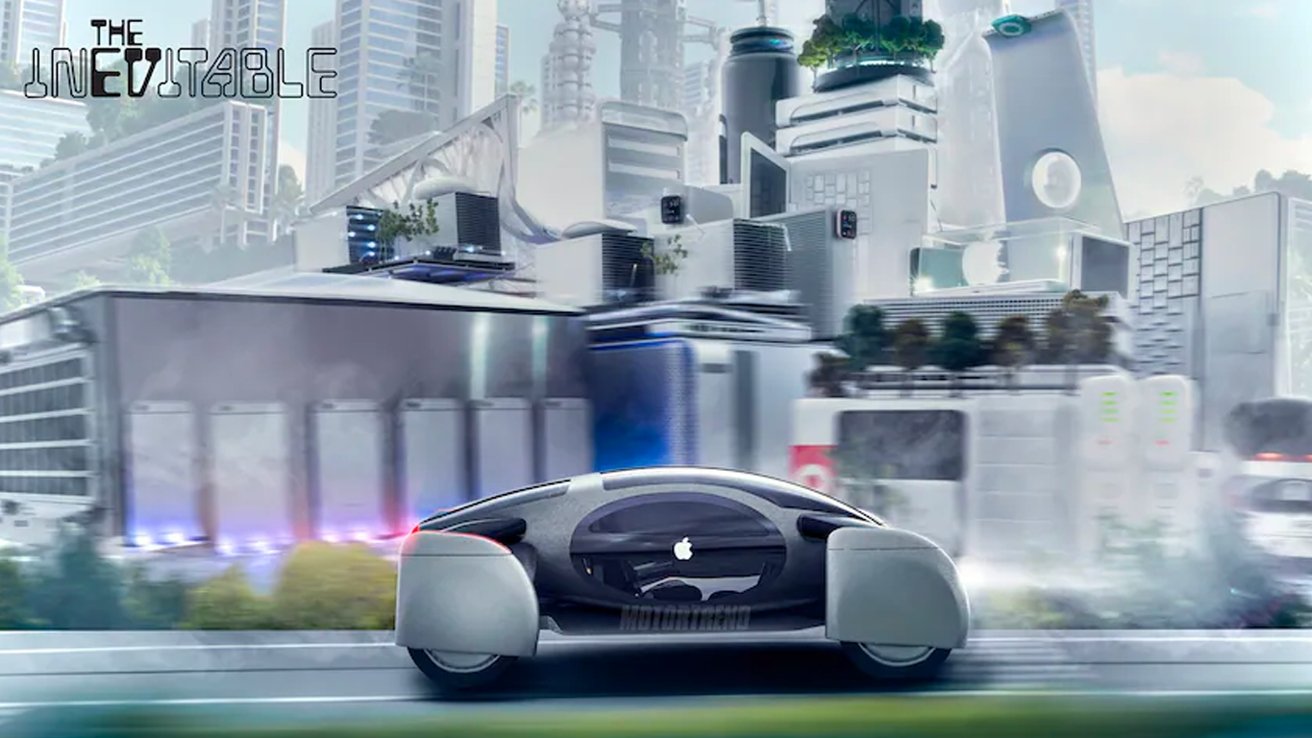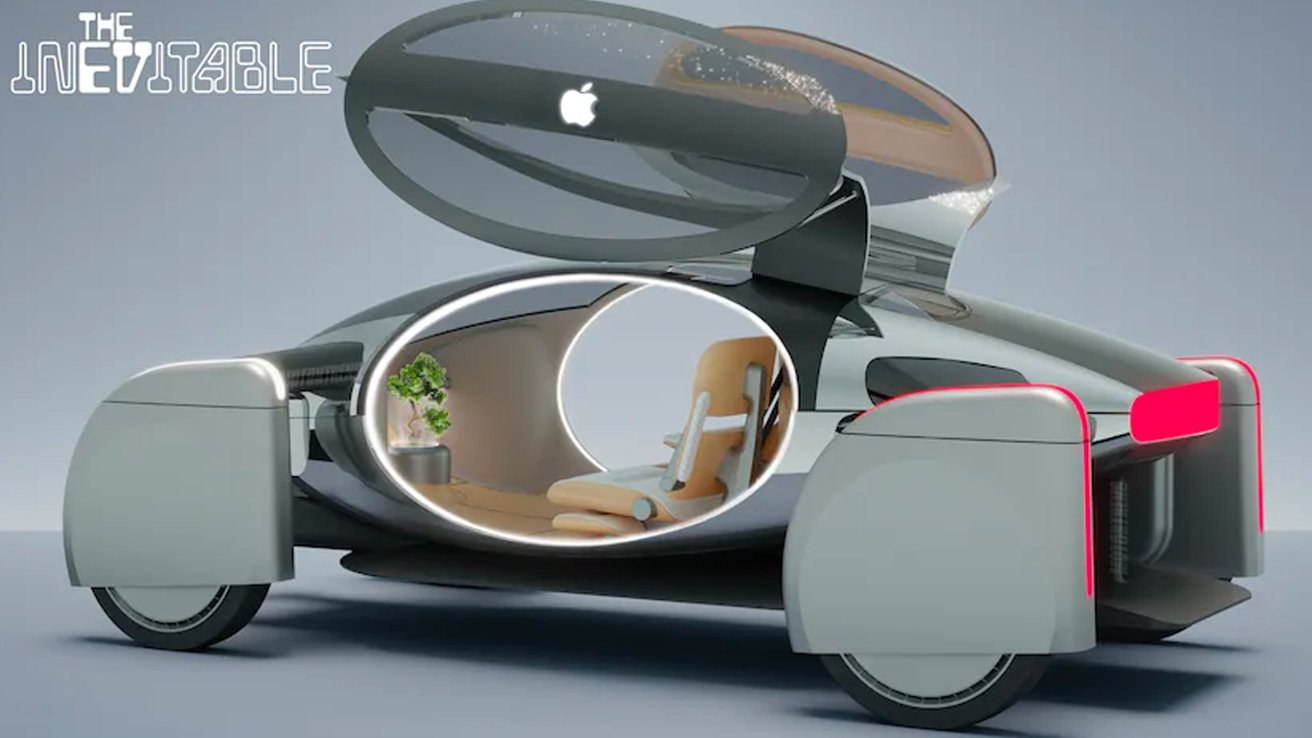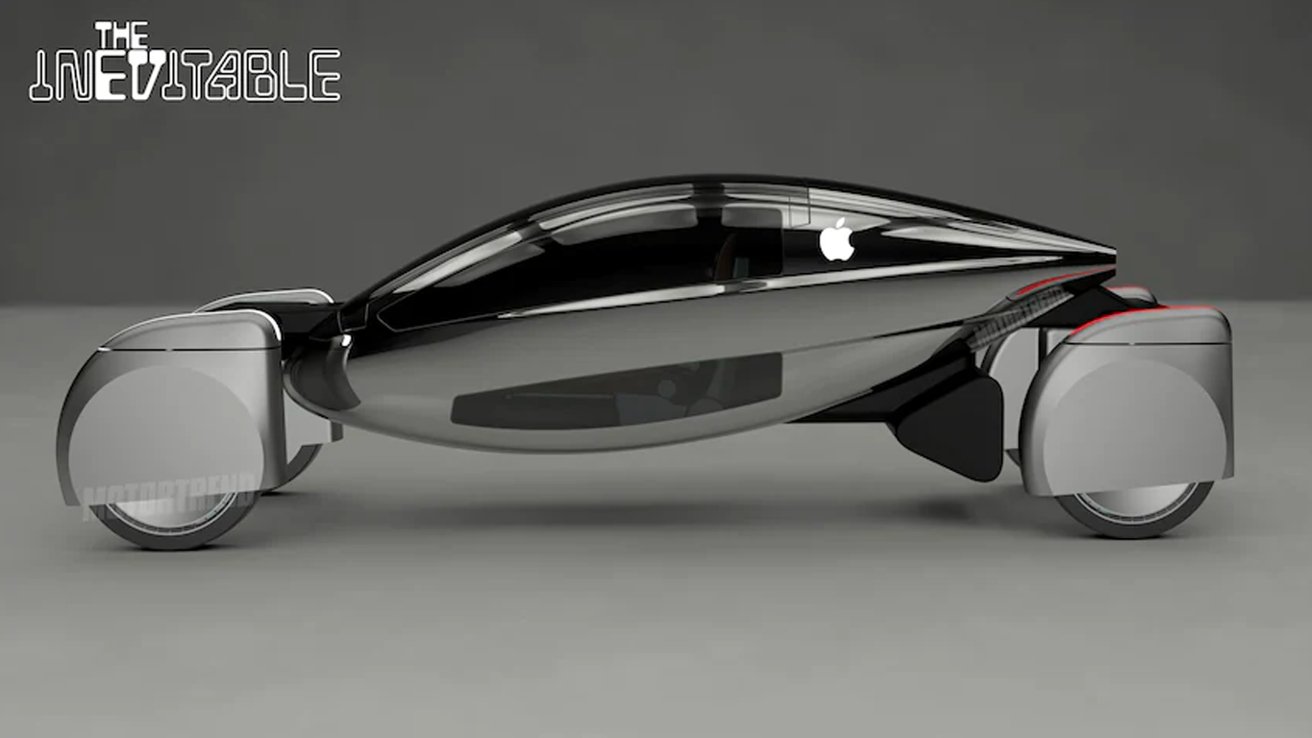American auto magazine Motor Trend is back to rehash its initial predictions for Apple's yet unannounced "Apple Car", this time updating it for the "inevitable" autonomous future.
The new report is, once again, a think piece that collates a collection of rumors into Motor Trend's best guess at what Apple might have in the the works.
It doesn't take long for the publication to reference its first stab at imagining the "Apple Car," one which wound up being ridiculed for being too "podlike." Yet, as Motor Trend points out, podlike cars are being developed all over.
Amazon has the Zoox, and even Apple debated acquiring the startup behind the Canoo Lifestyle vehicle.
However, not satisfied with its original idea, Motor Trend has come up with what it dubs as the "Apple Car" 2.0.
The renders the publication provides show a newer, sleeker version of an all-electric vehicle, similar to the Zoox or the Canoo, or even Tesla's Cybertruck.
This time, where most of the predictions lie this time isn't in the look of the car, but rather how the car functions.
Motor Trend sees a future where an autonomous "Apple Car" may be the most likely outcome. It's a safe bet, as it was learned in 2021 that Apple had been testing nearly 70 self-driving vehicles in California.
However, Motor Trend believes that Apple will likely pursue a rideshare-style program, rather than selling cars directly to consumers.
As it turns out, designing, manufacturing, and selling a vehicle from the ground up is an expensive endeavor. The publication reminds readers that vacuum manufacturer Dyson scrapped its electric vehicle after pumping more than $700 million into it. The company learned that they would have had to sell the car at $210,000, a price not many would be willing to pay.
So, instead of owning your own "Apple Car," you'd simply hail one the same way you might a Lyft or Uber. The only difference would be that the car would be entirely autonomous.
Of course, this future would be quite a ways off and likely restricted to major metropolitan areas where roads are grid-like and speeds are slow. The publication suggests that in the future, major metropolitan areas may ban private vehicles entirely, and autonomous ride-share vehicles could replace them.
It also goes on to speculate that Apple will create two models of vehicles — which it calls the ePod and the ePod Solo — to meet the riders needs. The ePod would be a larger vehicle, designed to haul multiple passengers or passengers with lots of goods. The smaller ePod Solo would be be a single-seat option — though we're somewhat skeptical at the concept of fleets of single-seat vehicles cluttering the roads of major cities like New York City and Chicago.
The piece, while based mostly on rumors and best guesses, is an interesting read. It also includes 29 renders of what it thinks the "Apple Car" might look like and how users might interact with it.
 Amber Neely
Amber Neely








-m.jpg)






 Charles Martin
Charles Martin


 Wesley Hilliard
Wesley Hilliard
 Stephen Silver
Stephen Silver
 William Gallagher
William Gallagher

 Marko Zivkovic
Marko Zivkovic









24 Comments
Not going to happen. The car-loving US culture blind-sides Apple in the pointlessness of this endeavour.
Sir Clive Sinclair, who created the original personal electric car in 1985, then spent millions in research into finding the optimum cycling geometry only to find that the existing geometries were already optimum. Solution already there.
There is no future for expensive driverless cars. The future is walking, cycling, tuk-tuks and shared minibuses. It will always be cheaper to employ a driver than to maintain a network of backup people to rush to a vehicle to sort out inevitable issues that arise. It will always be better for a society to walk or cycle. Something Sir Clive realised decades ago.
Simply replacing gas-guzzling vehicles with their electric counterparts does not cut it. Driverless does not cut it. The problem has already been solved but many of the current generation do not wish to accept the solution.
Ooph.. those concepts are so bad I feel guilty for pointing it out. They put a plant in one of them?? Incredibly cringy.
Haven’t we learned that saying “people will never” makes us look dumb?
Whatever Apple is working on will be revolutionary and the usual haters will be out in full force.
”The iPhone will fail because it’s not a good email machine!!”